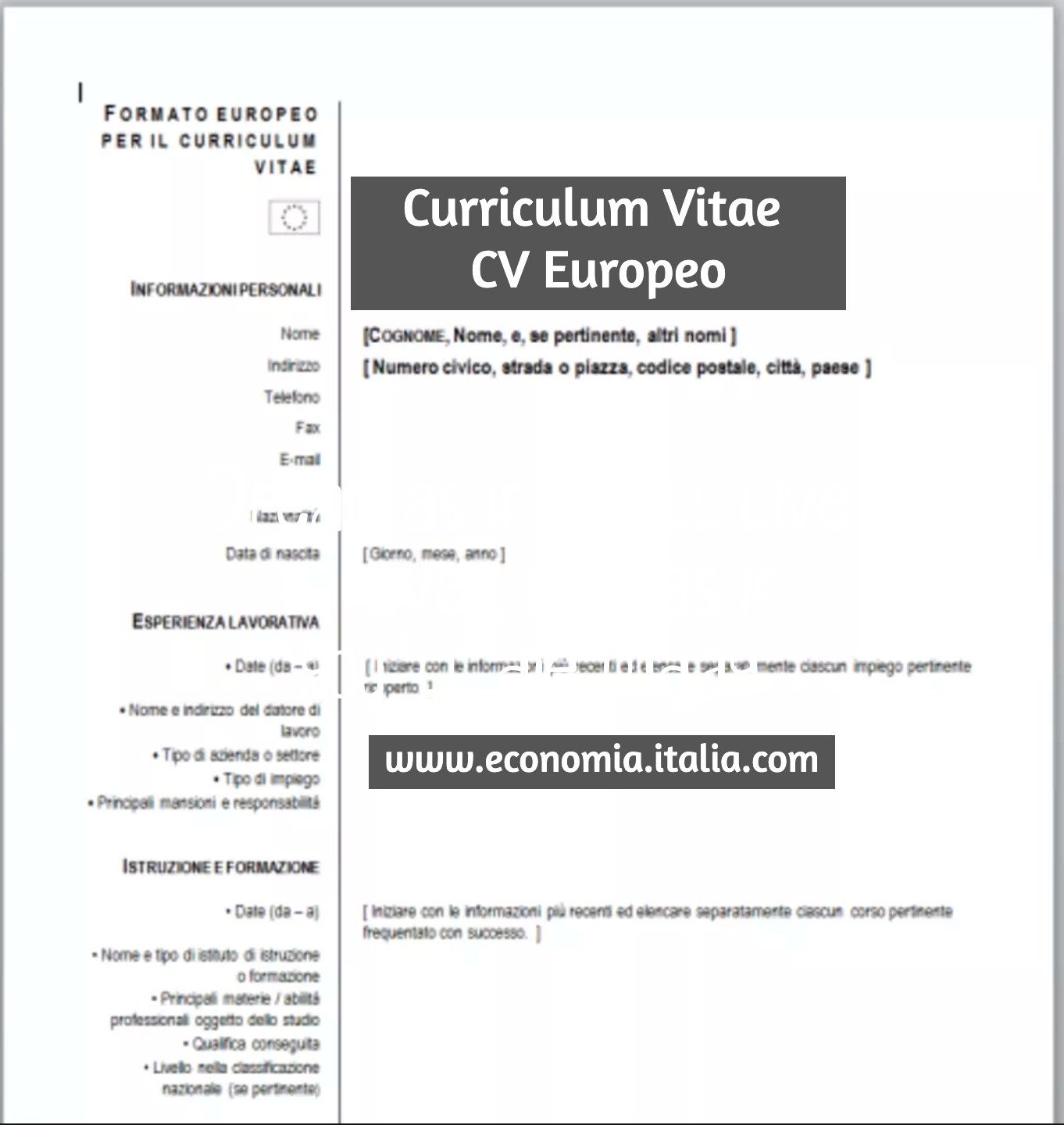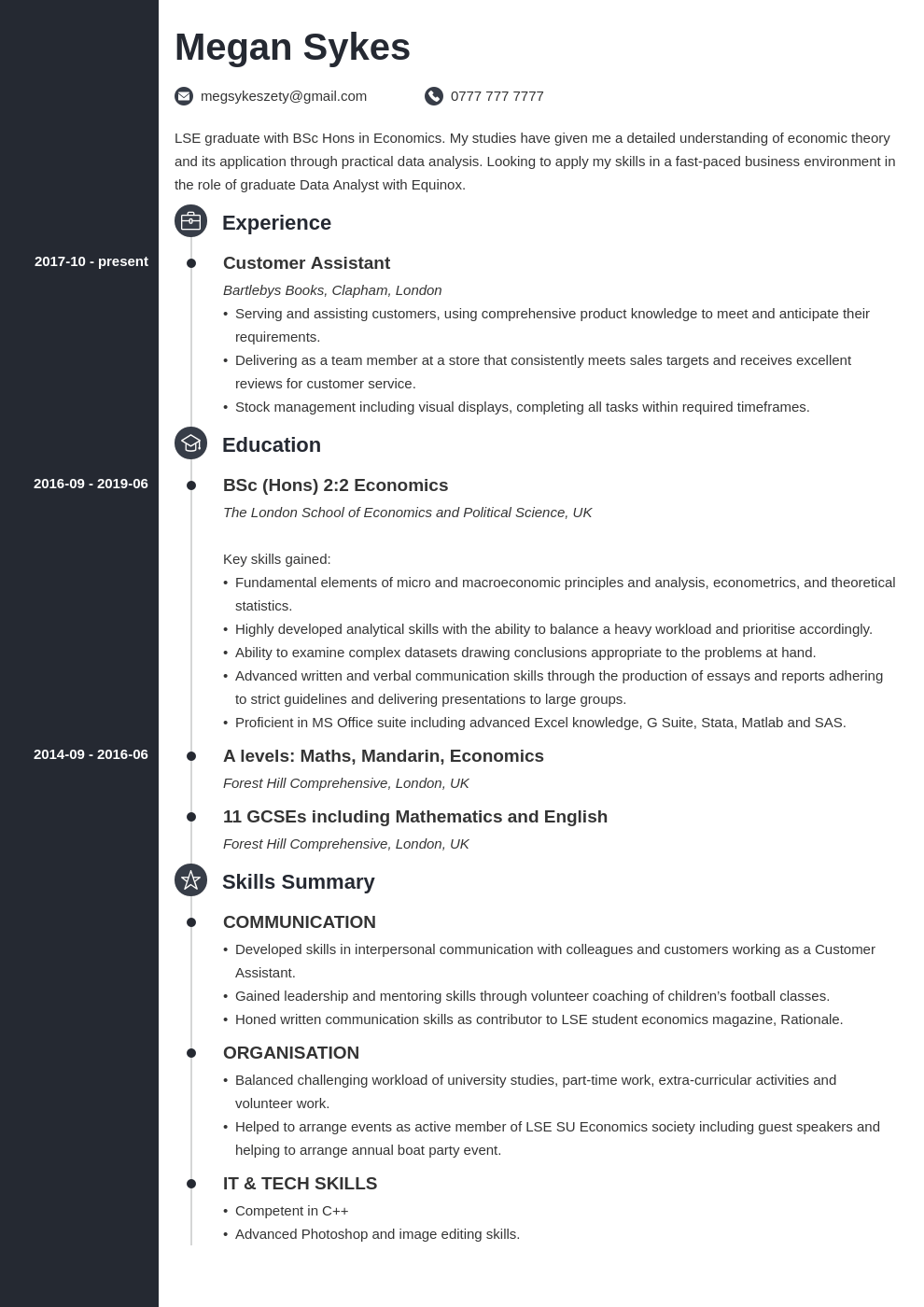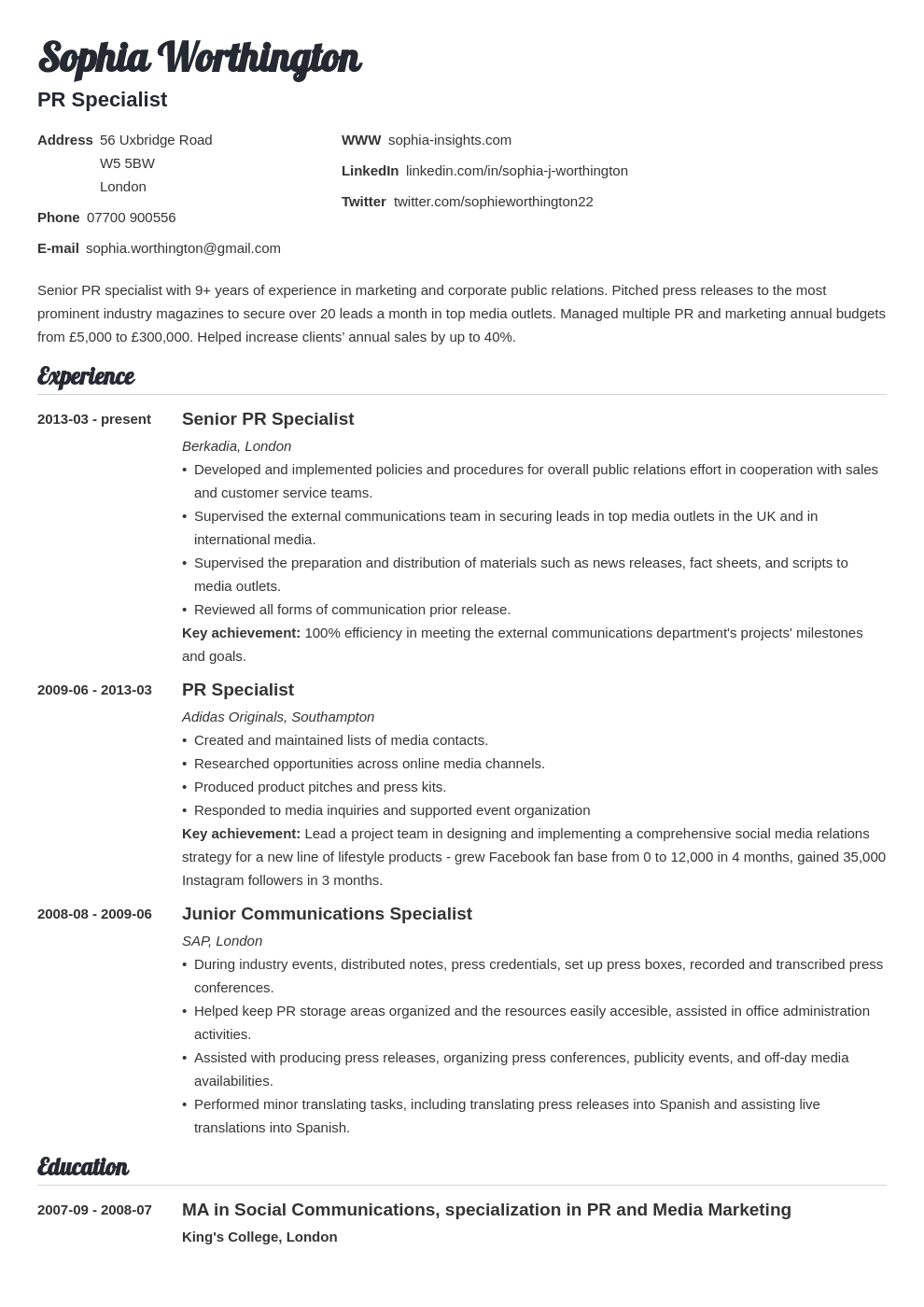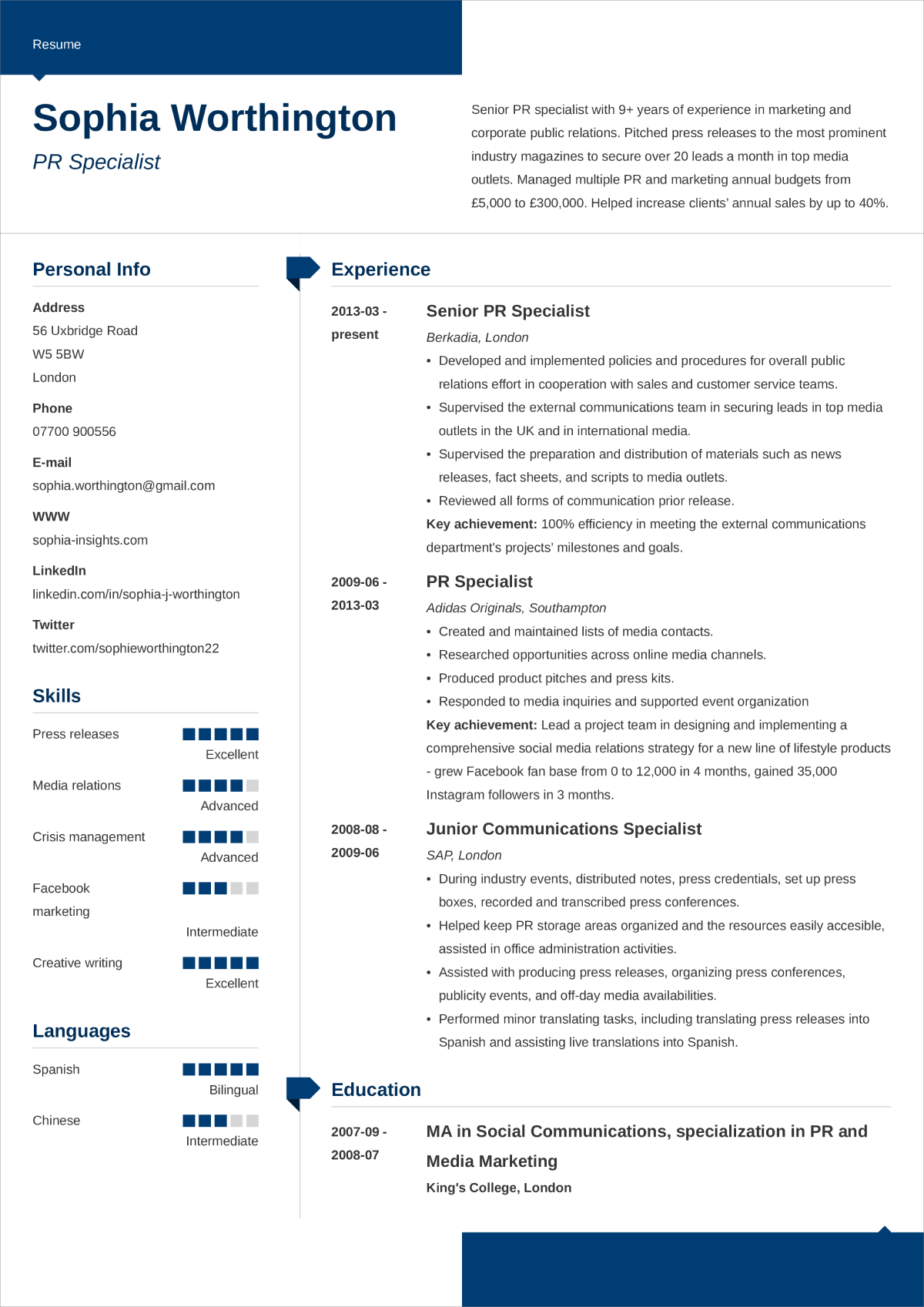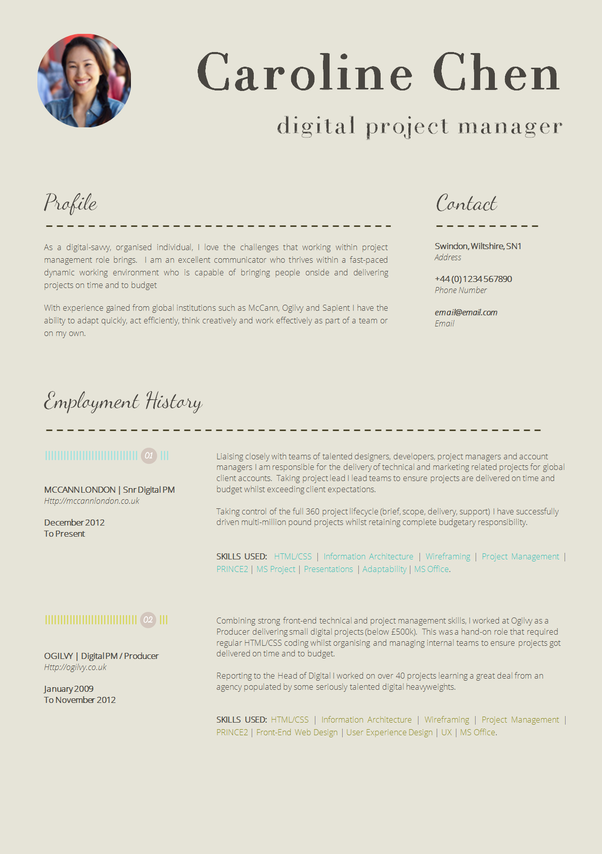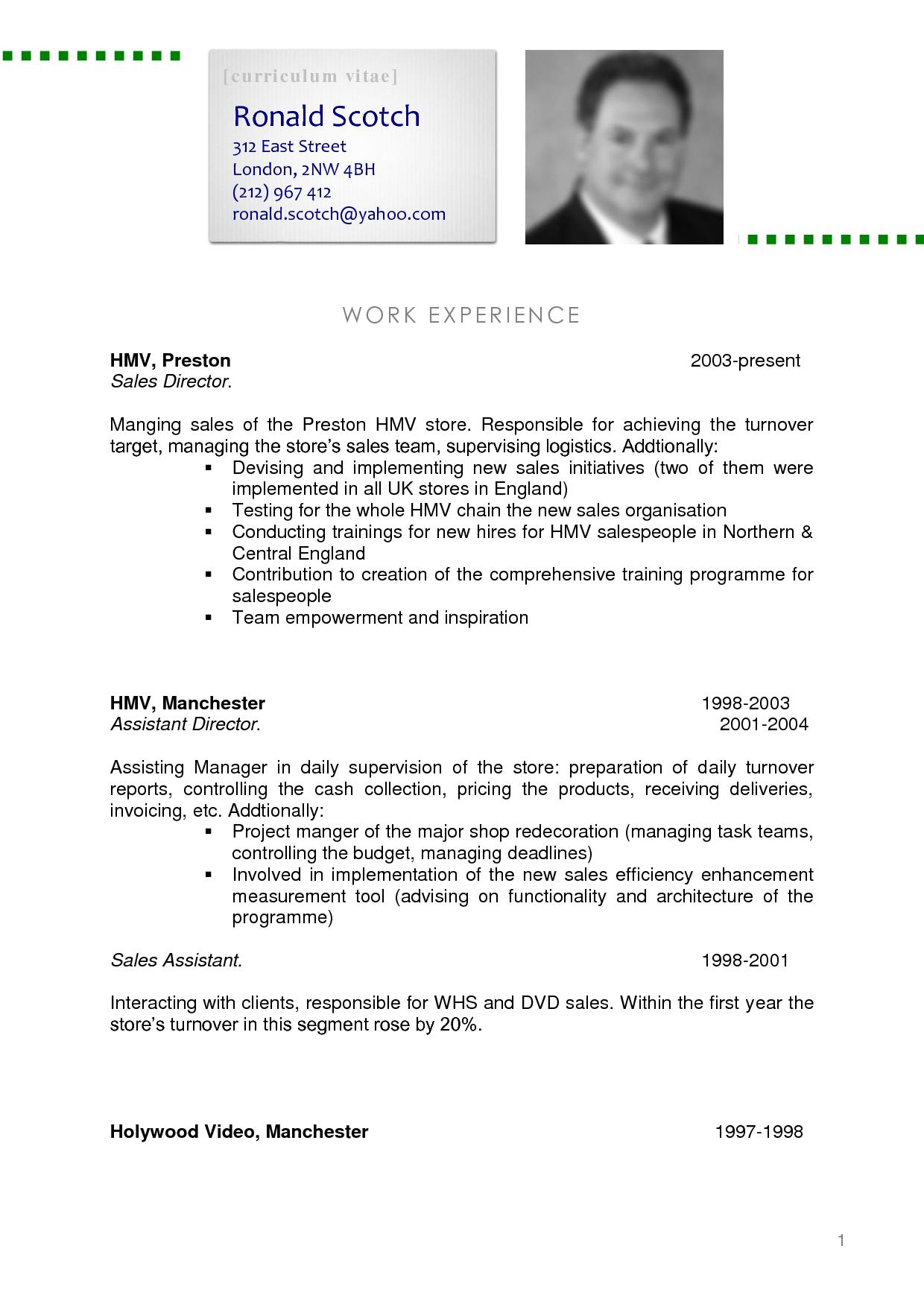In the u.s., a cv is used primarily when applying for academic, education, scientific or research positions. A cv (short for the latin phrase curriculum vitae, which means “course of life”) is a detailed document highlighting your professional and academic history.
Its purpose is to give a synopsis of your career, list your top skills and achievements and show what you can do for your future employer.

What is the main purpose of cv. The purpose of a job interview is twofold: The main differences between a resume and a cv are length, content and purpose. Rather, the key purpose of your cv is purely to convince a prospective employer of your employability and to arrange an interview or a meeting with you.
The purpose of your cv is not to get the job… it is to arrange an interview! A curriculum vitae is a marketing document that gives a summary of a job seekers career history, academic qualifications and also explains their future potential. The cv joint is also an integral part of the suspension.
The cv should not be seen as only an accessory, but rather as a key destined to open the door to the office of a potential employer for you. Resumes are typically one to two pages while cvs have no length restrictions but are typically between three and ten pages. To complement the cv or resume, briefly introduce yourself and explain your interest and fit for the job.
Secondly, its main purpose is to impress the reader. Therefore, another purpose of your resume is to introduce you to your prospective employers and let you communicate your most important assets to them. It explains the purpose of the cv and what you want to achieve.
For example, if your cv is for job searching, you may include one set of information, but of the cv is for admission to a graduate program of study, you may want to include different information. Here is a list of other section titles that you may consider for your cv: The real purpose of a cv.
Indeed the phrase ‘curriculum vitae’ is latin for ‘the story of your life’. A cv is primarily a gateway to an interview. Download the cv template (compatible with google docs and word online) or see below for more examples.
The coefficient of variation (cv) is defined as the ratio of the standard deviation to the mean , =. “the purpose of the cv is to land you an interview, and most candidates are not aware of this,” explains sophie gros d'aillon, a recruitment specialist of 15 years. In europe, the middle east, africa and asia, employers expect a cv.
The purpose of this document is not to get you the job, but to get you an interview. Modern rear wheel drive cars with independent rear suspension typically use cv joints at the ends of the rear axle halfshafts and. [1] it shows the extent of variability in relation to the mean of the population.
It makes all the difference: Provide a snapshot of your career: It may also depend on what the purpose of your cv is.
It is the design and work of the cv joint that allows for this smooth and constant delivery of energy to the wheels regardless of the angle at which the driver is turning. The main objective of your cv is to communicate to the recruiter that this particular job is the logical result of your career path. Keep it short, to the point and, above all else, interesting.
Cvs typically include information like work experience, achievements and awards, scholarships or grants you’ve earned, coursework, research projects and publications of your work. A curriculum vitae is a biographical document summarizing a person's education, relevant work experience, and other professional qualifications. One more thing to keep in mind when formatting a cv is to make it skimmable for recruiters and hiring managers.
Customise the template to showcase your experience, skillset and accomplishments, and highlight your most relevant qualifications for a new medical officer job. It is used to support an application for a job. This cv includes employment history, education, competencies, awards, skills, and personal interests.
The purpose of a cover letter is to present yourself in the best light. Always remember you're not writing a cv for yourself, you are writing it for your reader. It offers the employer valuable insight into your personality and abilities, and it allows you the chance to discern whether your credentials and.
Currently, there is a lot of discussion about what constitutes a career objective and what doesn’t. With your cover letter you want the respective employer to feel the urge to pick up the phone and call you for an interview. The joints enable power delivery to the wheels even as they bounce up and down along the terrain.
A cv’s main purpose is to be used for teaching or research positions in academia. If you are writing a cv, it is important that they show the full scope of your accomplishments so that employers can see your areas of expertise, research specialties, and where your published work has been accepted. This concept has been nicely illustrated in the following diagram related to the job application process:
Your cv has to evoke the desire to meet you! Career experts say that there are many ways to describe it and it is sometimes referred to as ‘career summary’. The coefficient of variation should be computed only for data measured on a ratio scale , that is, scales that have a meaningful zero and hence allow relative.
A resume is a concise, curated summary of your professional accomplishments that are most relevant to the industry job you’re applying for. Before jumping ship to a new company, you inevitably need to test the waters during the job interview. I would say the main difference between a resume and a cv is that a cv is intended to be a full record of your career history and a resume is a brief, targeted list of skills and achievements.
As you write your cv, put yourself in their shoes. Rather, according to unc writing center, the cv’s a “fairly detailed overview of your life’s accomplishments, especially those most relevant to the realm of academia,” hence the variance in length; A personal statement is a short paragraph at the top of your cv which gives employers an overview of your education, skills and experience.
Your resume provides details of your working life. Your cv is not the place to demonstrate what you are looking for.
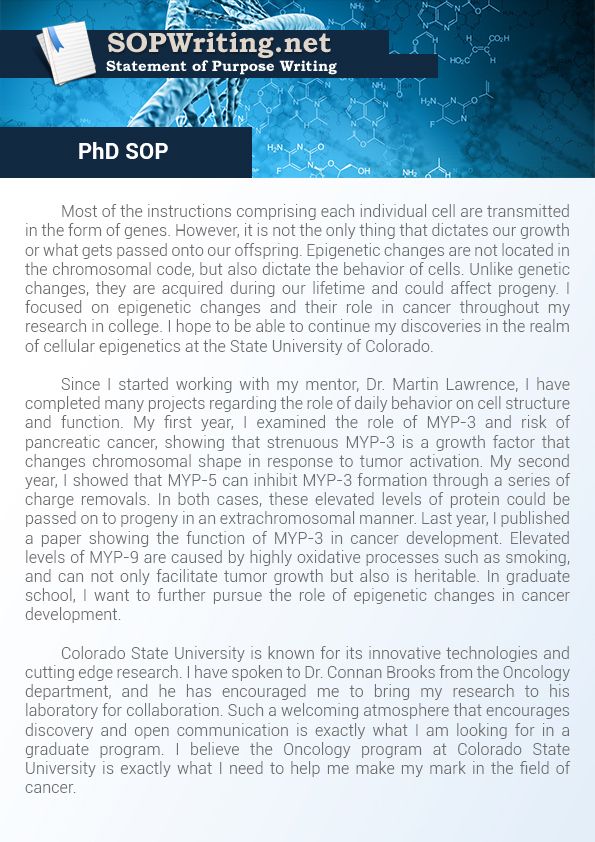
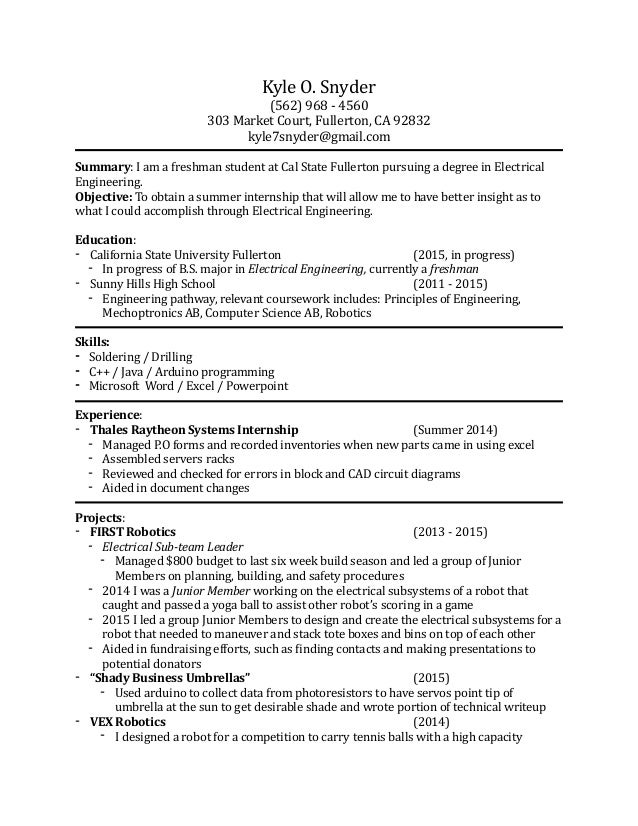
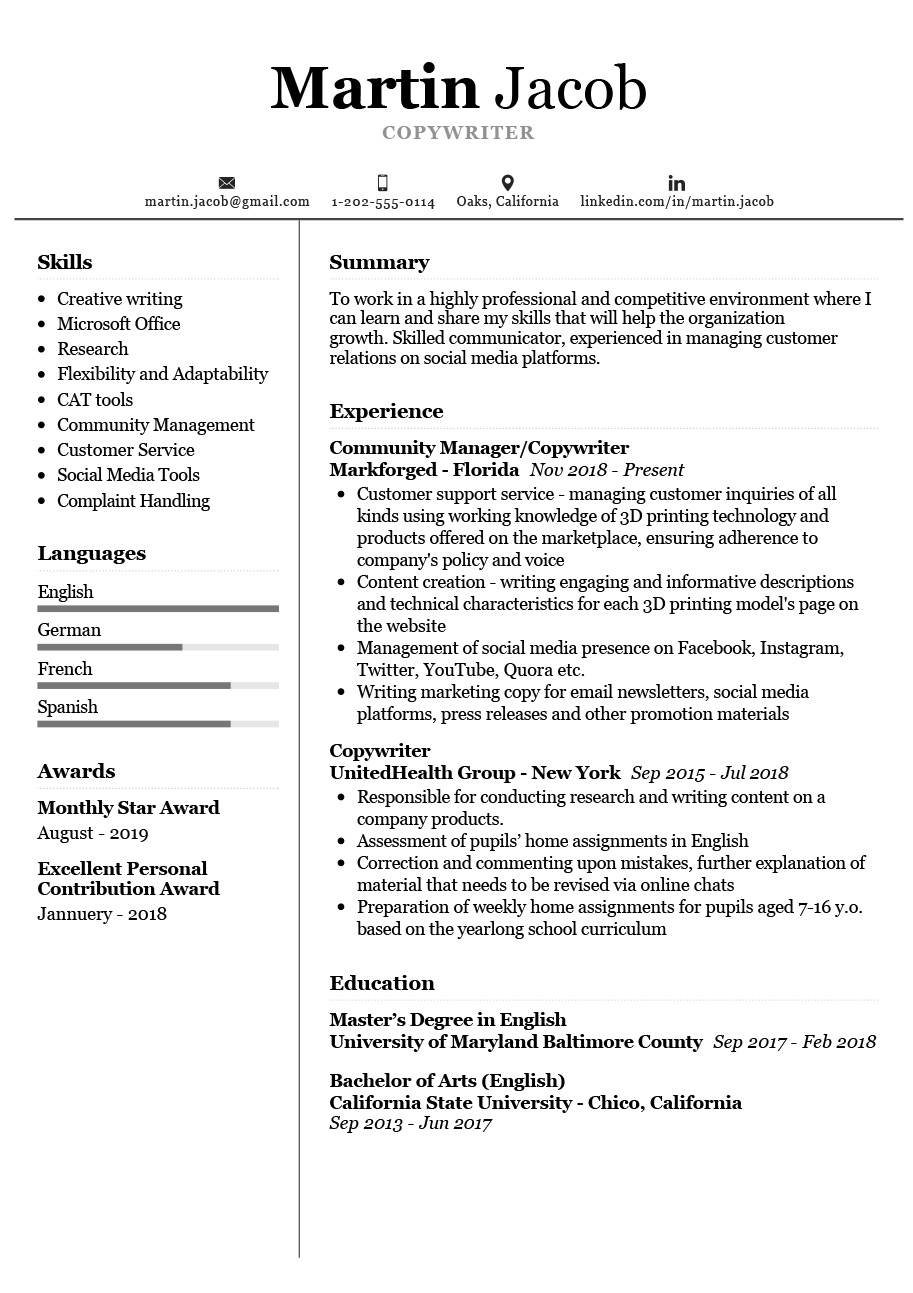
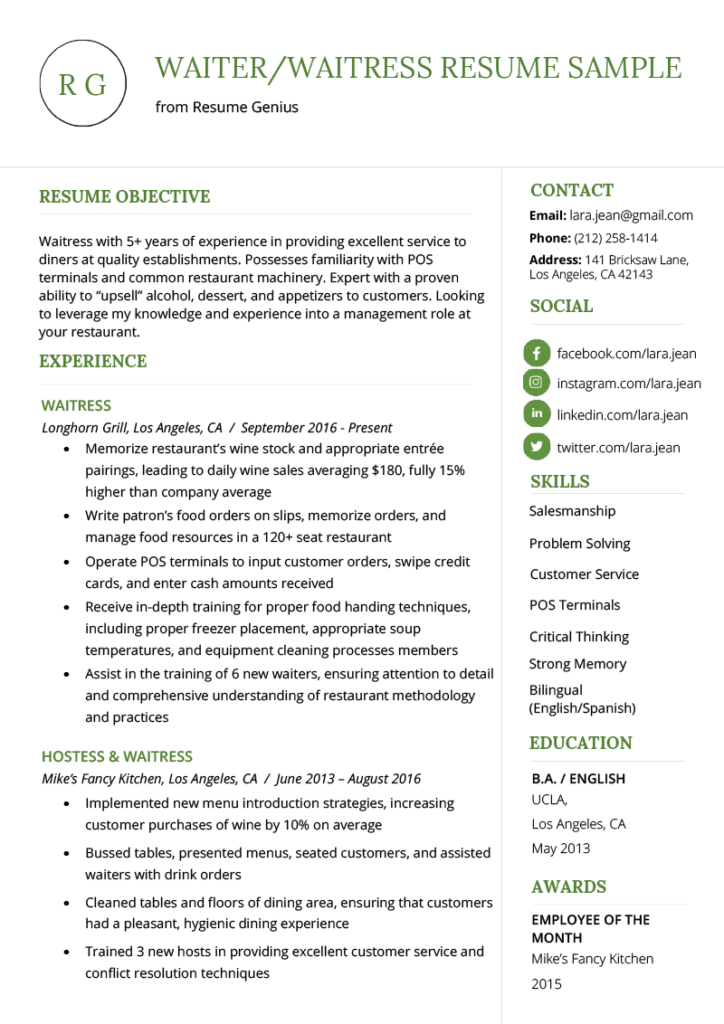

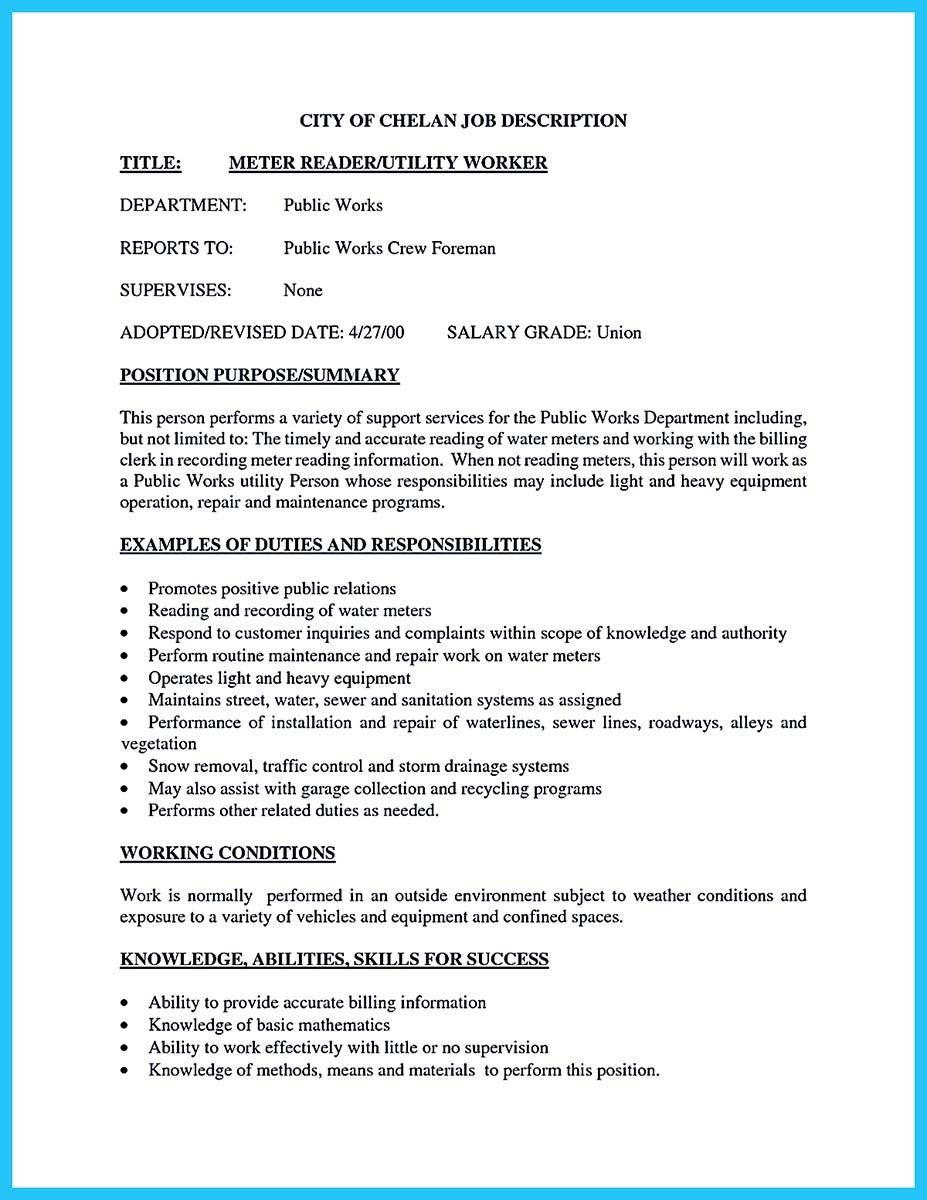

:max_bytes(150000):strip_icc()/2063595res-f37bb54abfcd4b84b9462acbf7069636.jpg)
